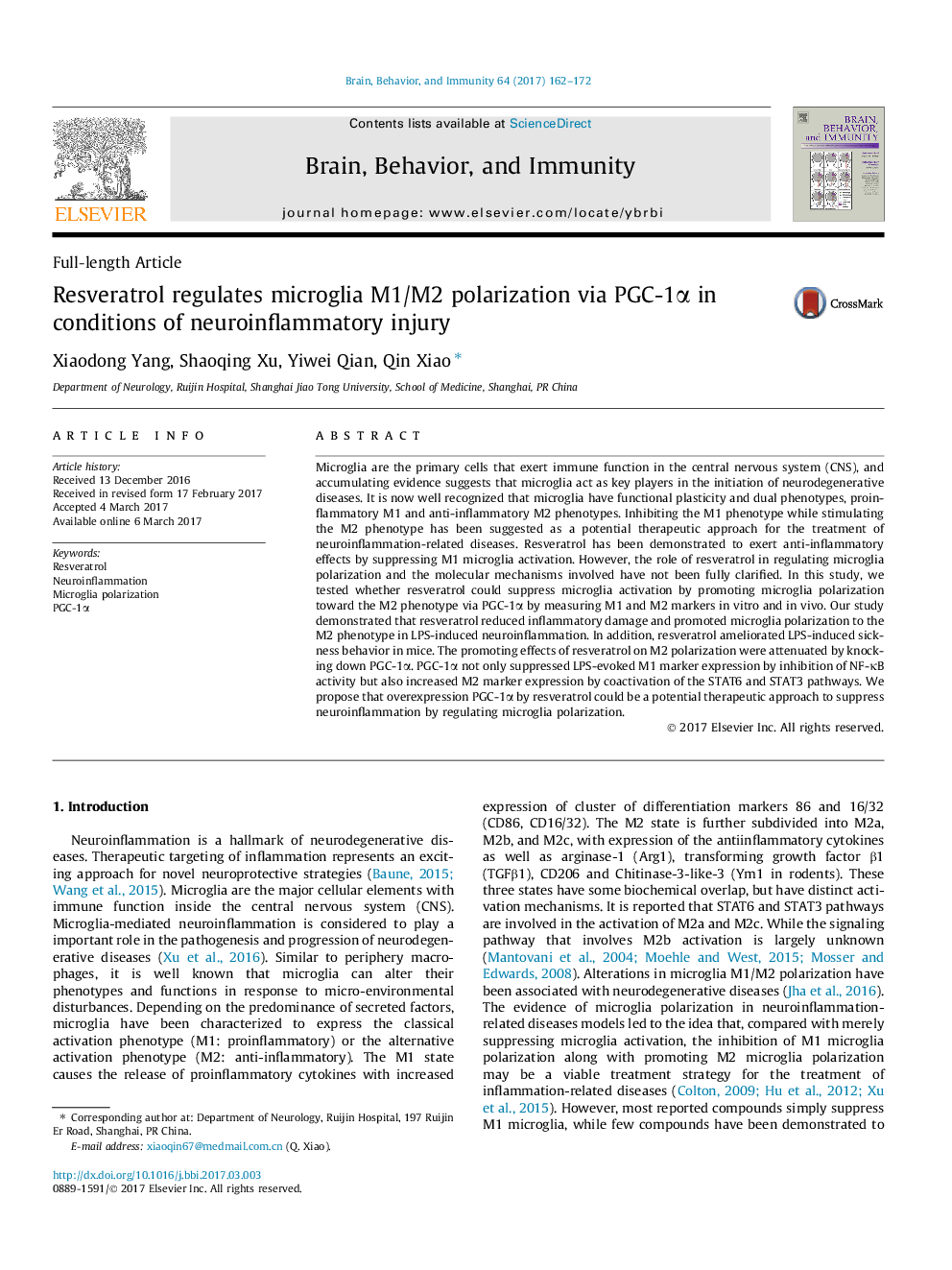| کد مقاله | کد نشریه | سال انتشار | مقاله انگلیسی | نسخه تمام متن |
|---|---|---|---|---|
| 5040631 | 1473903 | 2017 | 11 صفحه PDF | دانلود رایگان |

- Resveratrol promotes microglia polarization to the M2 phenotype.
- PGC-1α is involved in resveratrol-induced microglia M2 polarization.
- PGC-1α regulates microglia polarization through NF-κB, STAT6 and STAT3 pathways.
- Overexpression of PGC-1α by resveratrol could be a potential therapeutic approach.
Microglia are the primary cells that exert immune function in the central nervous system (CNS), and accumulating evidence suggests that microglia act as key players in the initiation of neurodegenerative diseases. It is now well recognized that microglia have functional plasticity and dual phenotypes, proinflammatory M1 and anti-inflammatory M2 phenotypes. Inhibiting the M1 phenotype while stimulating the M2 phenotype has been suggested as a potential therapeutic approach for the treatment of neuroinflammation-related diseases. Resveratrol has been demonstrated to exert anti-inflammatory effects by suppressing M1 microglia activation. However, the role of resveratrol in regulating microglia polarization and the molecular mechanisms involved have not been fully clarified. In this study, we tested whether resveratrol could suppress microglia activation by promoting microglia polarization toward the M2 phenotype via PGC-1α by measuring M1 and M2 markers in vitro and in vivo. Our study demonstrated that resveratrol reduced inflammatory damage and promoted microglia polarization to the M2 phenotype in LPS-induced neuroinflammation. In addition, resveratrol ameliorated LPS-induced sickness behavior in mice. The promoting effects of resveratrol on M2 polarization were attenuated by knocking down PGC-1α. PGC-1α not only suppressed LPS-evoked M1 marker expression by inhibition of NF-κB activity but also increased M2 marker expression by coactivation of the STAT6 and STAT3 pathways. We propose that overexpression PGC-1α by resveratrol could be a potential therapeutic approach to suppress neuroinflammation by regulating microglia polarization.
Journal: Brain, Behavior, and Immunity - Volume 64, August 2017, Pages 162-172